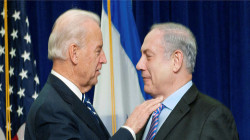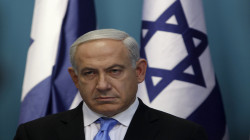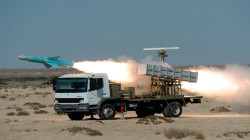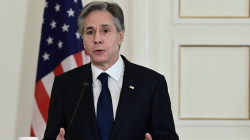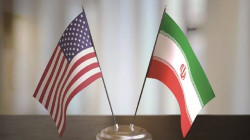US support for Israel fuels Iran-supported factions
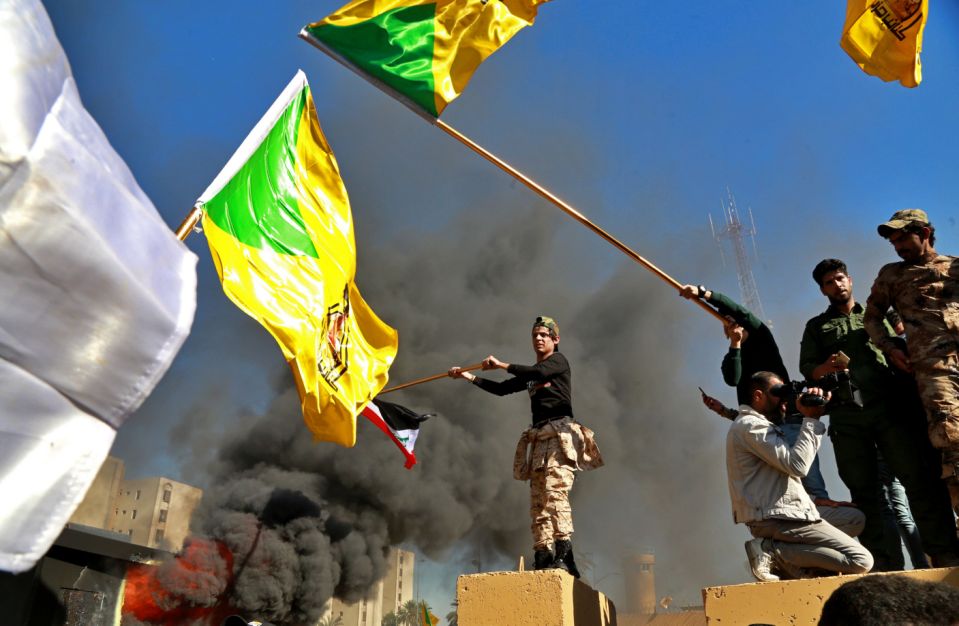
Shafaq News / ON THE DAY meant to honor Hezbollah’s own martyrs, the group’s secretary general, Hassan Nasrallah, dedicated a considerable portion of his speech to fighters elsewhere in the region. In a televised address on November 11, Nasrallah praised not just Hezbollah’s strikes on Israel launched from southern Lebanon, but also “supporting fronts” in Iraq and Syria, where armed groups have carried out more than 60 attacks on American troops in the past month.
“These actions reflect great courage because it is the Americans they are fighting, the Americans whose fleets, aircraft carriers, and bases fill the region,” Nasrallah said of his Iraqi allies. “If you Americans want these operations on the supporting fronts to stop, if you don’t want regional war, you must stop the aggression and war on Gaza.”
Nasrallah’s words indicate growing unity among the so-called axis of resistance, a network of Iran-backed actors in the Mideast that includes Hamas, Hezbollah, the Syrian government, the Houthis in Yemen, and armed groups in Iraq and Syria. Though this unity and the violence it threatens to unleash has not yet translated into major military action, it marks the most significant backlash to the U.S. presence in the region in recent years.
The resistance narrative has found appeal beyond members of the axis, many of whom the U.S. considers terror organizations. Even in more moderate circles, America’s unfettered support for Israel, in the wake of the Hamas attack on October 7, has fueled anti-American sentiment in a region where many people see Israel’s relentless bombing of Gaza as an extension of decades of unjust U.S. policy in the Middle East.
Gut-wrenching images of bombing victims in Gaza have brought back memories of bloody conflicts the U.S. has waged or supported in places like Iraq and Yemen, with Western reluctance to condemn Israel for massive Palestinian casualties reminding Arabs and Muslims how little their lives seem to factor into Western policymaking.
The lackluster response of Arab nations has allowed militant groups to capitalize on popular outrage and bolster their resistance credentials by positioning themselves as the only ones willing to stand up to Israel and its backers.
In Iraq, Israel’s war on Palestine has regalvanized armed factions that formed in the wake of the 2003 U.S. invasion, an anti-occupation cause they see as directly linked to the Palestinian struggle for freedom. In just the last 24 hours, there have been several engagements between Iraqi militants and U.S. forces.
In his Baghdad office, Kataib Hezbollah military spokesperson Jaafar al-Husseini arrived for our meeting at the end of October in an upbeat mood that seemed at odds with the bloodshed that engulfed the region since October 7. “To the contrary, this is the easiest of times,” he explained. “This is a straightforward battle. Palestine is the fundamental issue.”
Kataib Hezbollah is the most secretive and most powerful of the Iraqi resistance groups. Although they’ve been partly incorporated into the government security apparatus as part of what Iraqi officials describe as a gradual demobilization — critics call it state capture at the hands of Iranian proxies — they relapse into violence during times of perceived Western meddling. The Pentagon’s recent decision to deploy aircraft carriers and personnel to the Middle East was taken as evidence of direct U.S. involvement in the Israel–Palestine conflict.
“America is a partner in this battle and in killing Palestinians, and therefore, they must pay the price,” al-Husseini said. “What is happening now in terms of targeting American bases is a natural response of the resistance fighters.”
Iraq’s “resistance” factions have momentarily put aside rivalries to jointly claim responsibility, via a newly established Telegram channel, for dozens of rocket and drone attacks on American troops stationed in Iraq and Syria to fight the Islamic State group, which the Pentagon says have resulted in several light injuries.
These ripple effects were part of Hamas’s calculus to help shatter what the Palestinian group regarded as an untenable status quo in the occupied territories. The prospect of a political solution had faded in recent years amid increased violence and expulsions by Israelis, especially in the West Bank, under the watch of the most right-wing government in Israel’s history.
(The Intercept)
